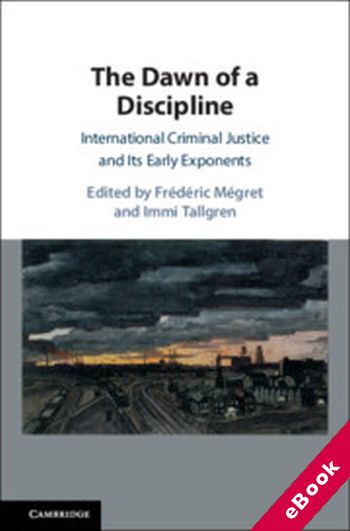
The device(s) you use to access the eBook content must be authorized with an Adobe ID before you download the product otherwise it will fail to register correctly.
For further information see https://www.wildy.com/ebook-formats
Once the order is confirmed an automated e-mail will be sent to you to allow you to download the eBook.
All eBooks are supplied firm sale and cannot be returned. If you believe there is a fault with your eBook then contact us on ebooks@wildy.com and we will help in resolving the issue. This does not affect your statutory rights.
The history of international criminal justice is often recounted as a series of institutional innovations. But international criminal justice is also the product of intellectual developments made in its infancy. This book examines the contributions of a dozen key figures in the early phase of international criminal justice, focusing principally on the inter-war years up to Nuremberg. Where did these figures come from, what did they have in common, and what is left of their legacy? What did they leave out? How was international criminal justice framed by the concerns of their epoch and what intuitions have passed the test of time? What does it mean to reimagine international criminal justice as emanating from individual intellectual narratives? In interrogating this past in all its complexity one does not only do justice to it; one can recover a sense of the manifold trajectories that international criminal justice could have taken.